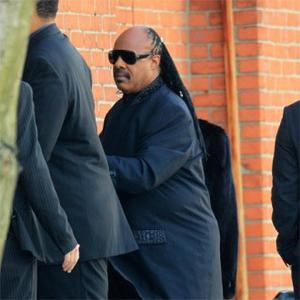 Mourning is an odd thing these days, especially for celebrities. Especially if the death is sudden, the cable news networks go into overdrive, interviewing anybody who had a remote connection to the deceased and even those who didn’t. They cover the public displays of balloons and flowers and teddy bears. If there’s old videos, they get on as soon as possible. And movies? Put them on immediately.
Mourning is an odd thing these days, especially for celebrities. Especially if the death is sudden, the cable news networks go into overdrive, interviewing anybody who had a remote connection to the deceased and even those who didn’t. They cover the public displays of balloons and flowers and teddy bears. If there’s old videos, they get on as soon as possible. And movies? Put them on immediately.
The flickering light of the television set is the designated votive candle for celebs. And news directors noticing the a bump in ratings from the initial shocking pronouncement find a way to bring second say stories, third day stories, stories every news cycle until the funeral. And when the funeral comes, as it did Saturday for Whitney Houston in Newark, a week after her death in Beverly Hills, the coverage is well to wall, non stop And even if the service is FOUR HOURS as Saturday’s was, they’ll show it over and over the rest of the day and into the night.
First we must answer this question: When did Whitney Houston become this supposed music icon we heard so much about? It’s sad she died so relatively young,and yes she had a remarkable career and even more remarkable voice for a time. But that was mostly 25 years ago.
I’m wondering what the big supporters were doing for Whitney in the last 12 years or so, when her life spiraled down so low that it literally became a reality show titled “Being Bobby Brown”?
Let me ask, crassly maybe: Would we have this big a funeral and coverage if Mariah Carey died? If Celine Dion did? (Well, maybe in Canada).
They did this much and more for Michael Jackson, but he was a much bigger figure in music – someone who actually changed pop culture in his long career. James Brown would be in this category as well, and I’m not sure they showed his funeral at all on TV then. (They certainly didn’t rerun it all day). If they’re flying flags at half mast in New Jersey for Whitney shouldn’t there have been a bigger recognition for the death of Etta James? Or Teena Marie?
This is not to say that the funeral of Whitney Houston wasn’t interesting. Just about anybody’s funeral is interesting if the service is done well. We learn more and more about the person from various people whose lives were touched. We leave with a greater understanding.
In the case of Whitney Houston, a huge audience also became intimately acquainted with the traditions of a black Baptist service – from the rousing, joyful choir with its full band backing, the eloquent, passionate speeches, the hair-raising gospel performances and generally a raucous call and response with the congregation that was peppered with frequent applause (and sly exhortation for applause: “Clap for Jesus now, clap for Jesus!”).
It made you wish you could watch full services of any denomination on TV, just to give you insight and understanding (but wait a minute, that is available, on the religious channels).
For Whitney Houston’s funeral there was a mix of songs Whitney would have wanted (according to her family) and those that were retooled to honor her. One singer rewrote “A Change is Gonna Come” with Newark references. Stevie Wonder rewrote “Ribbon in the Sky” with Whitney references (the “Love’s in Need of Love Today” that followed was likely the whole service highlight).
The raspy, familiar voice of Whitney cousin Dionne Warwick was just right as the host between guests. Because the family was in control of the pool camera, there was a focus mostly on the front altar – and no reaction shots of family or big celebrities.
With CNN’s single-minded obsession with whether Bobby Brown was present or seated would have provided a very different viewing experience if they were in control of cameras.
The arrangement was deemed the best way to have control over a family and friends funeral while sharing it with the world. Now they’re going to have to tell the cable networks to stop running it over and over ghoulishly.